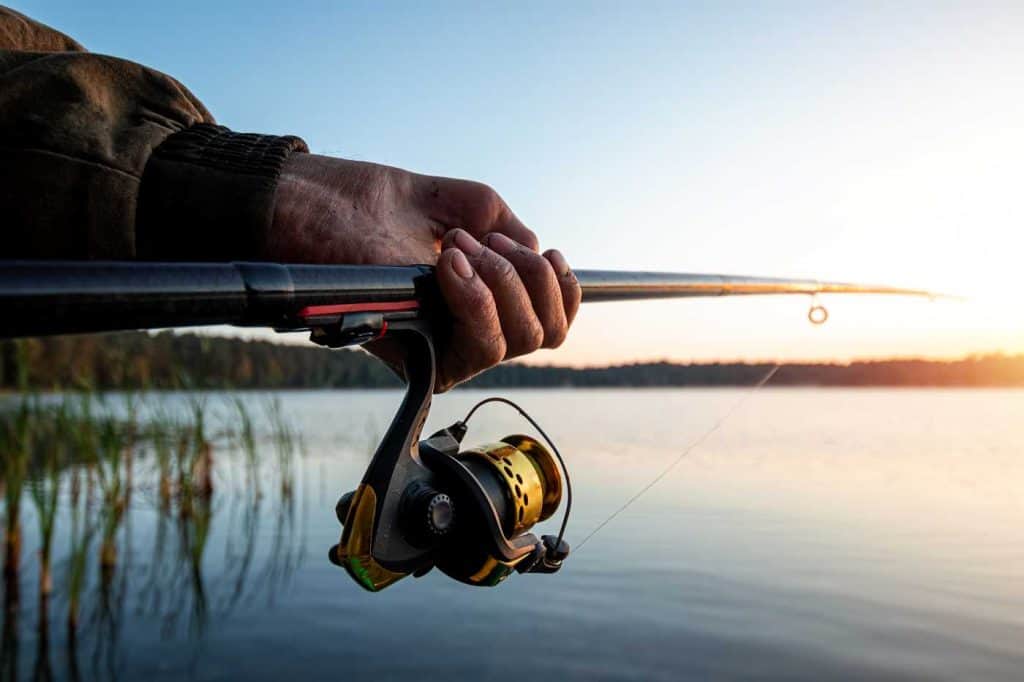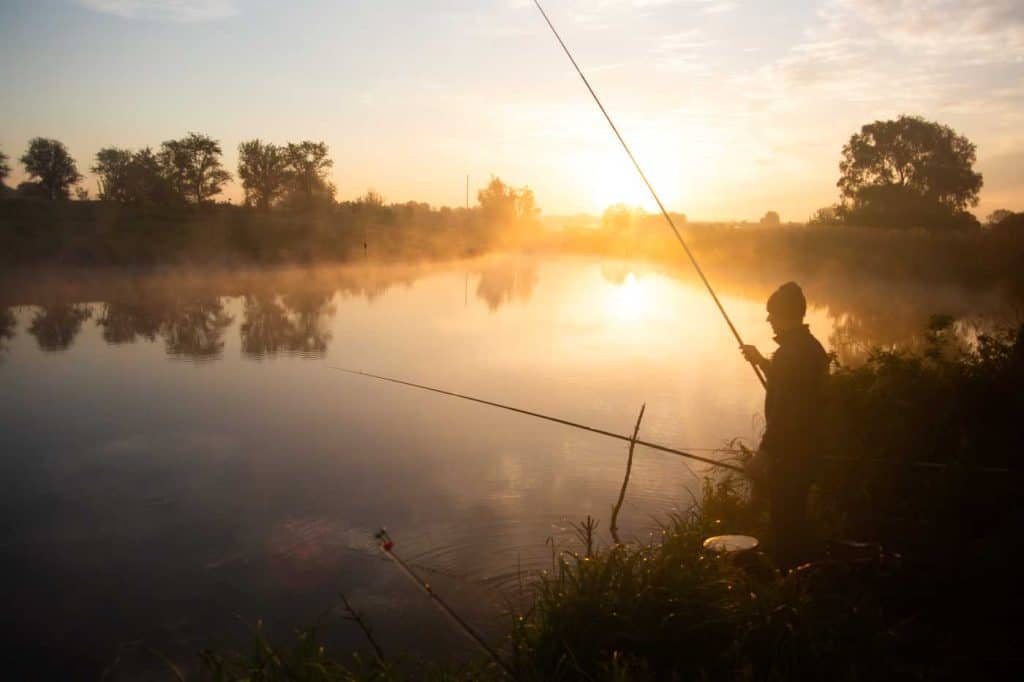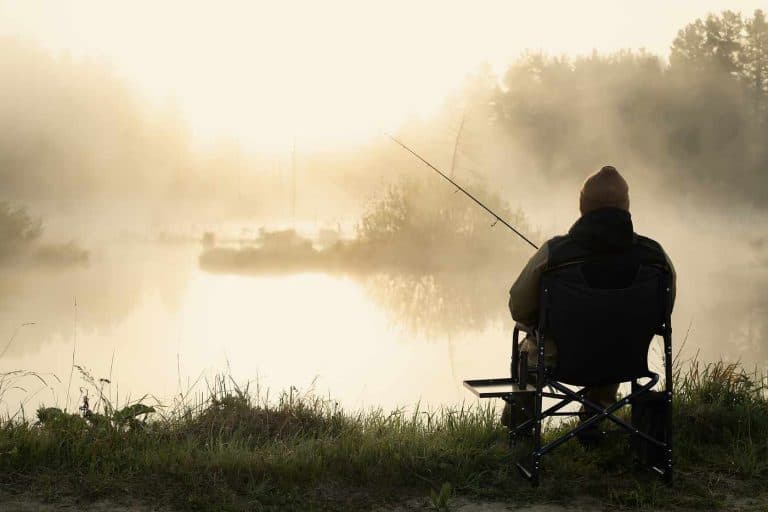The sun dipped below the horizon, casting an orange glow over the water as Tom cast his line, feeling the world’s weight lifting from his shoulders. This serene moment wasn’t about catching fish; it was his respite, his therapy. As the ripples spread across the lake, so did a sense of tranquility through his mind.
Fishing, often viewed merely as a hobby or sport, transcends these labels to become something profoundly connected to our mental well-being. Nature’s gentle embrace, the rhythmic sound of water, and the intense focus required; these elements coalesce into a therapeutic ritual that benefits the mind. Not merely a reprieve from daily stress, fishing can be an engaging, reflective practice that fosters mental peace and growth.
In this article, we will embark on a journey that explores the multifaceted relationship between fishing and mental health. We’ll delve into how the connection to nature nourishes the mind, the psychological intricacies of fishing, its role in social bonding, and the personal discovery it can ignite.
The Psychology of Fishing
In the gentle sway of a boat or the silent watch on a riverbank, fishing offers more than a quest for a catch; it’s a dance with the human psyche. This ancient practice, refined over generations, is imbued with psychological depth and complexity that resonate well beyond the water’s edge.
Whether through the mental agility required to strategize the perfect catch or the meditative tranquility found in waiting, fishing engages the mind in ways that are profound and often therapeutic.
The Mental Process of Fishing

Whether it’s off-shore fishing, fly fishing, or other forms of fishing, such an activity is not simply about bait and catch; it’s a complex psychological journey that engages the mind in unique ways. The strategic thinking needed to choose the right spot, select the proper bait, and anticipate the fish’s movement forms an intellectual exercise.
Simultaneously, the repetitive motions and the patient waiting transform into a meditative experience, connecting the conscious and subconscious mind.
Fishing’s allure reaches beyond the catch; it draws on fundamental human instincts, strategies, patience, and an immersion in the moment.
Concentration and Mindfulness
Casting a line into the water might seem a straightforward task, but it demands a level of focus and mindfulness that can be both surprising and enlightening. The rhythmic motions, the gentle splash of the lure, and the keen observation of the water’s surface require an intense presence.
Through this focus, fishing becomes a gateway to mindfulness, grounding the angler in the present and silencing the noisy distractions of daily life. Fishing fosters a state of flow where time seems to stand still, offering a profound connection to the self and the surrounding environment.
Impact on Stress and Anxiety
Life’s pressures can build up, creating a torrent of stress and anxiety. Fishing offers a unique antidote. The patience required to wait for a bite, the peaceful surroundings, the joy of the catch, or even the acceptance of an empty hook all contribute to a calming effect.
The ability of fishing to lessen stress isn’t merely an assumption. Rather, it is based on scientific evidence. For example, in one study, the relationship between recreational fishing and pandemic stress was studied. Unsurprisingly, the conclusion was that most anglers note a significant stress reduction when they were fishing, especially when they’re with family and friends.
Social Aspects of Fishing
In the communal tug of a net or the shared silence of a dawn fishing trip, the lines between individuals blur, connecting people through a shared experience that transcends mere sport. Whether in the calm of a secluded pond or the thrill of catching fish in choppy water, fishing binds people across backgrounds and experiences. The world of fishing is replete with opportunities for social bonding and community building.
Fishing as a Social Bonding Tool
Many families and friends find common ground and connection through fishing. Whether it’s a parent teaching a child the art of the cast or friends sharing tales over a crackling fire after a day on the water, fishing becomes a conduit for connection. It allows space for conversation, reflection, and shared memories, building bonds that endure long after the catch is released.
Community Fishing Events
Fishing isn’t confined to personal or familial connections. Across towns and cities, community fishing events draw diverse crowds, forging unity and camaraderie. These gatherings can range from charity fishing tournaments to educational workshops for beginners. They are not merely about catching fish; they promote community spirit, cultural exchange, and a shared appreciation for nature and the environment.
Therapeutic Group Fishing Programs
On a more profound level, therapeutic group fishing programs have emerged as innovative interventions for various populations. From support groups for veterans to programs for individuals struggling with addiction, these fishing expeditions serve as collective therapy. Participants not only learn the skill of fishing but engage in a healing process, finding solace in a supportive community that understands their unique challenges.
Environmental Connections: Fishing and Nature
Fishing isn’t just an interaction with the water and its inhabitants; it’s a gateway to nature’s therapy room and a call to environmental stewardship. In addition, fishing fosters a sense of responsibility toward our planet.
Nature Therapy: How Fishing’s Outdoor Setting Contributes to Well-being
Being immersed in nature while fishing offers a balm for the soul often unattainable within four walls. The feel of the wind, the sound of the water, the sight of a horizon; fishing engages all senses, grounding individuals in the present moment. This sensory engagement allows people to escape the often overwhelming modern world and reconnect with something more primal and tranquil.
Emotional release is another powerful aspect of this connection. Nature’s expansiveness allows for introspection and reflection, a therapeutic experience many find when fishing. The open spaces provide room to breathe, think, and feel, unburdened by daily stresses.
Furthermore, the outdoor environment encourages physical activity, enhancing overall health. The combination of fresh air, sunlight, and exercise can significantly contribute to a person’s physical well-being, complementing the mental and emotional benefits.
Finally, fishing fosters a deep connection with nature, a relationship that often leads to increased mindfulness and satisfaction. Connecting to the Earth, understanding its rhythms and participating in them, can be profoundly healing and restorative.
Environmental Stewardship: Fishing’s Role in Conservation Awareness
Fishing is more than an act of catching fish; it’s a stewardship of the environment. Anglers are often on the front line of conservation, employing responsible practices like catch-and-release and respecting regulations that ensure the sustainability of fish populations.
Through fishing, many become educators and advocates for clean water, fish population control, and overall ecosystem health. They recognize that their hobby is directly linked to the health of the environment and often become passionate defenders of it.
Community engagement is another critical aspect of fishing’s link to conservation. Fishing clubs and organizations frequently contribute to local conservation efforts, providing education and resources, and creating a ripple effect in community awareness and action.
On a broader scale, fishing connects individuals to global sustainability issues. It’s a reflection of the planet’s ecological balance, a microcosm that illustrates how individual actions can have far-reaching impacts. The stewardship seen in responsible fishing practices is a lesson in mindfulness and care that extends beyond the water’s edge.
When Fishing Can Take a Toll on Your Mental Well-being
While fishing is often lauded for its therapeutic and calming effects, it’s essential to recognize that it’s not without potential pitfalls. Like any pursuit, fishing can sometimes contribute to stress and anxiety rather than alleviate them.
Obsession over Success: The Trap of Perfectionism
The joy of fishing can sometimes transform into an unhealthy obsession with success. Anglers may fall into the trap of perfectionism, where catching fish becomes an all-consuming goal, overshadowing the peaceful and meditative aspects of the sport. This pressure to succeed can lead to frustration, anxiety, and a loss of enjoyment.
Financial Strain: The Hidden Costs
Fishing, especially when pursued at a professional or highly enthusiastic level, can become a costly hobby. The expenses of gear, travel, licensing, and other hidden costs can add up, leading to financial strain. This financial burden may, in turn, result in stress and anxiety, detracting from the mental health benefits that fishing typically provides.
Social Isolation: When Solitude Becomes Loneliness
Though solitude can be one of fishing’s greatest gifts, it can sometimes morph into isolation or loneliness, particularly if one fishes exclusively alone or neglects other social engagements. Striking a balance between solitary fishing and social connections ensures that the practice remains a source of enrichment rather than isolation.
Safety Concerns: Risks in Extreme Conditions
Pursuing the thrill of fishing in extreme conditions can be both exhilarating and hazardous. Physical risk and safety concerns can lead to stress and anxiety if not properly managed. Being aware of the environment, understanding the risks, and taking proper precautions ensures that the adventure remains positive rather than detrimental to mental well-being.
Tips and Tricks to Enhance the Impact of Fishing on Your Mental Health

Fishing, as we have explored, is more than a leisure activity; it’s a pathway to mental tranquility and well-being. The act of fishing can be both meditative and invigorating, providing a unique blend of relaxation and stimulation. However, to maximize these benefits, it’s essential to approach fishing with intention and understanding.
Mindful Fishing: Embrace the Present Moment
Mindfulness in fishing means fully immersing oneself in the experience, paying attention to the sensations, thoughts, and emotions that arise. Focus on the tactile sensations of the rod in your hand, the gentle pull of the line, and the subtle movements beneath the water’s surface. By being fully present, fishing becomes a form of meditation, calming the mind and creating a profound connection with nature.
Choose the Right Environment: Your Sanctuary
The fishing location can significantly influence the mental benefits you receive. Consider what type of environment resonates with you. Is it a secluded mountain lake or a bustling pier by the sea? Selecting a place that feels like a sanctuary can amplify the therapeutic effects of fishing. Consider factors like accessibility, scenery, noise levels, and personal preferences to find the perfect fishing spot for your mental well-being.
Incorporate Fishing into a Holistic Wellness Routine
Fishing doesn’t have to stand alone as a therapeutic activity. Integrating it into a broader wellness routine, such as combining it with yoga, journaling, or other mindfulness practices, can create a synergistic effect. This integration allows fishing to become part of a broader strategy for mental health, reinforcing and enhancing the benefits across different areas of life.
Conclusion
Fishing offers more than mere recreation; it’s a subtle therapy for the mind. By engaging with the elements, practicing patience, and connecting with our surroundings, we unearth tranquility and growth. This exploration of fishing’s mental health benefits reveals a path that’s accessible to all, inviting us to cast a line into waters rich with insight and well-being. It’s a journey worth taking, filled with lessons that ripple beyond the riverbank.
